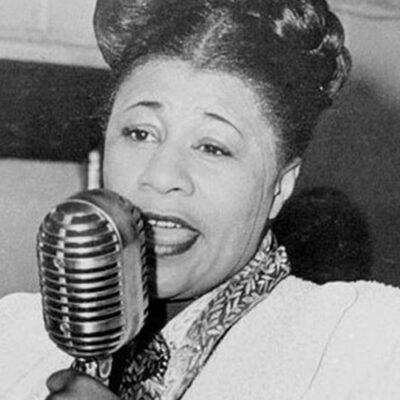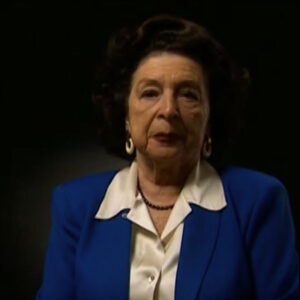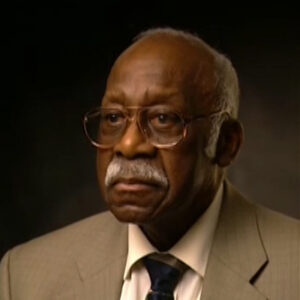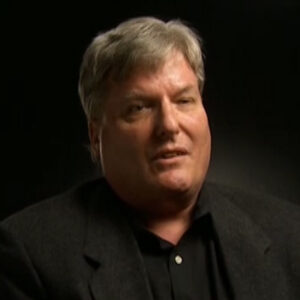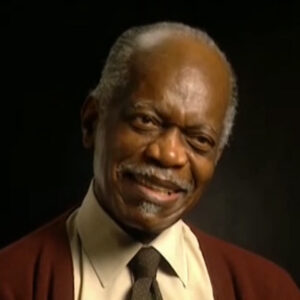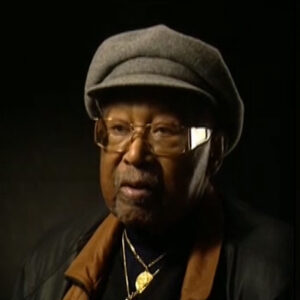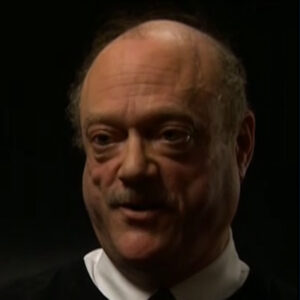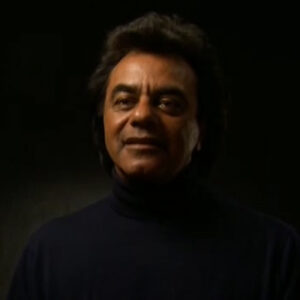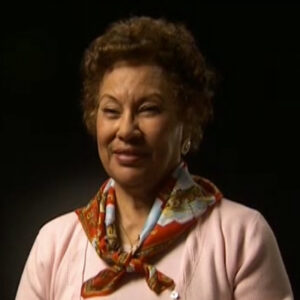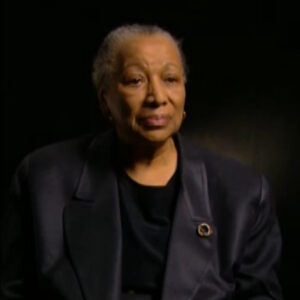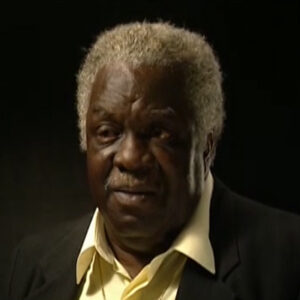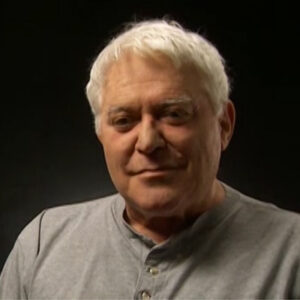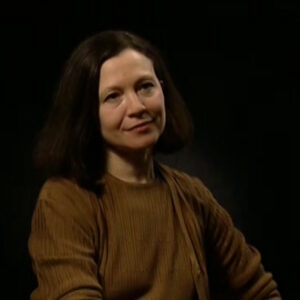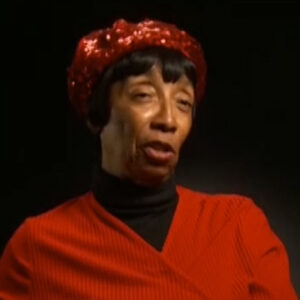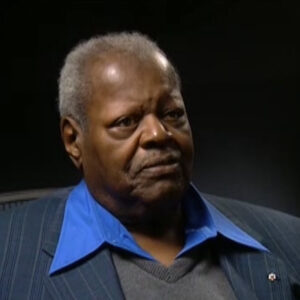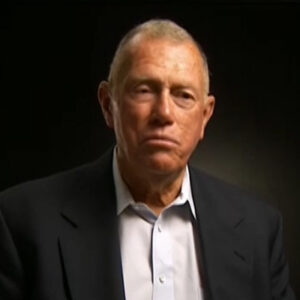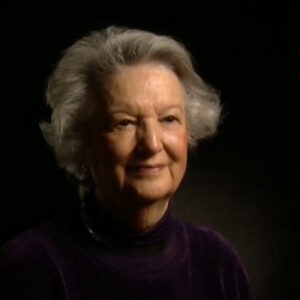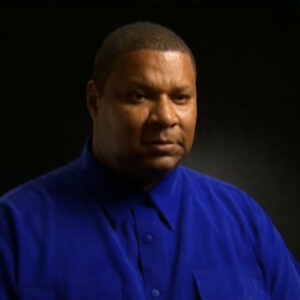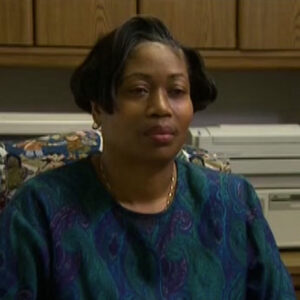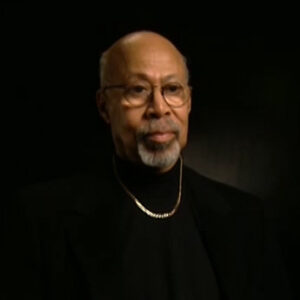Speaker Requirements. Thanks. You know, there’s some truth in that.
Speaker Yes, I’m sure I’ll go. Yeah. Yes. OK. Could you tell me what you think? American popular city is.
Speaker Well, I don’t like the way it’s not not defined now. I mean, there are no more boundaries, no American popular song. It includes everything. From people back in my 20s to all the rock people, I go.
Speaker Boundaries.
Speaker I was side in terms in jazz, so-called and non jazz singer. I mean, purely commercial singers. And they were the two sides, plus blues singers, people like that, who would fall in their own area.
Speaker Give me some examples of a popular singer who would be a gypsy?
Speaker Well, I mean, Billie Holiday was supposed to be the great female jazz singer and.
Speaker Everybody is going out of my head.
Speaker You know, all the big, big band singers and stuff. I can’t think of many of names now with Harry James and Tommy Dorsey and Joe Stafford, somebody like that. You know, a wonderful singer, Charles Stafford. But I thought of her as in jazz.
Speaker Why wouldn’t she just.
Speaker It’s almost impossible to define jazz singing, you know? It’s a rhythm, basically a rhythmic thing.
Speaker And it’s the quality and the voice.
Speaker It’s the feeling that comes says it’s so difficult to, you know, I mean, barely had it’s certainly a very powerful way from the mid thirties until about forty one or two.
Speaker And then she got very mannered to my way of thinking. Now, Ella.
Speaker No, I mean, Ella was puzzling, Ella, hello, came at her songs from the outside. And Billy worked from the inside out. That’s where I always found him.
Speaker You know.
Speaker Just cause. Well, I mean, you don’t want to talk a lot about it now. I mean, you’re talking about this general, whatever, you know. Well, I think that the election year with Chick Webb, what she started in the mid thirties, right. Had a great deal to do with her singing eventually because she had this fantastic drummer behind her, you know, probably probably the most powerful drummer who left. And I think he shaped her whole rhythmic approach. And, you know, I mean, she didn’t realize at the time that. And then, you know, her listening to Connie Boswell and Ethel Waters and people like that. But I hear that that even when she was doing the scat singing later on in the 40s.
Speaker You can still hear that rhythmic in consulates and she picked up from WAMM.
Speaker Would you define her as a jazz singer?
Speaker Yes and no. I mean, sometimes, you know, and she was very curious. I take it I don’t know whether you’ve listened to this on this new Smithsonian jazz singing album, sat there five days called a jazz singer. He put her version of Until the Real Thing Comes Ellen’s version of Until the Real Thing Comes Along. And there. And that’s very interesting because the version of it that I think is the real version was by Julia Lee. She was a Kansas City singer. And I think she made it in the 40s. And that just rocks along to take them at their right. And Ella just kind of floats over. And she didn’t come anywhere near what that song is. You know, it’s very interesting comparison. I don’t know why you chose I heard that version of the song.
Speaker But then when she did, her scarum famous scat thing is in the 40s, they.
Speaker Yes, I guess. I mean, it is jazz saying she jumps all over the place rhythmically, she goes back, she goes forward, she’s on the beat. But when it comes to scat sing, I’d rather listen to Leo Watson because he’s surprised, you know, like that’s going to get going. I’m one of those things. And you just you almost knew what she was going to do next. I mean, it just it didn’t it didn’t jump around and knock you out.
Speaker Leo Watson, who is kind of crazy, but he’s a wild singer and of course, he influenced her. You can hear and you can hear Leo want.
Speaker And you can sing.
Speaker People, do you think, influenced her? She did.
Speaker Well, I mean, Connie Boswell, I guess a famous but certainly Ethel Waters.
Speaker And then that’s it. I mean, she gets herself right from the beginning. That voice and the little girl voice, which never went the way she was herself. And, of course, she influenced countless people. And you’re still a hero and you still hear it. I mean, not many young singers I know, but certainly in middle age singer Terrell Sloane.
Speaker When was the first time we ever heard what you said?
Speaker I suppose in college in the 40s begin the same turn, you know, and she did this captain’s lady be good. How high then? I think that was the first time that I sounded pretty sensational. I had never heard anything like that before.
Speaker We motivated to hear we were not at that time.
Speaker I didn’t listen too much. That was outside of the strict jazz world, you know. And only later on, I began to make all kinds of singers.
Speaker So even in that first moment, you place your outside of Jeff.
Speaker It’s very difficult to.
Speaker I mean, clearly, she is she’s.
Speaker She had the all of the attributes, you know, the rhythmic fluidity and the rhythmic sense.
Speaker But she and she never moved me the way Billie Holiday did. It’s a very puzzling thing. I don’t know.
Speaker And I know that there are countless people who feel that that’s it. That’s crazy. You know, they find her terribly moving. It’s a highly personal. I mean, you couldn’t I simply could not say, no, she wasn’t a jazz.
Speaker No, she was.
Speaker But she wasn’t. She didn’t move me.
Speaker Well, there’s a story said this. But it says it wouldn’t.
Speaker When I was saying my man’s gone now. He went out for of cigarettes.
Speaker When Bill is saying, see this guy, Tony scarps on the Internet, that illustrates. Well, that’s what I was trying to say. Yeah.
Speaker Billy was with me when I sensed that Billy projected a kind of dangerous quality.
Speaker And Ella sounded like a little girl. You get much sense of voice that Billy had a lot of. Sexuality and her singing. We just knew been living, Louie, Louie, Louie, Louie, Louie.
Speaker That’s yeah, that’s very interesting that the two of them should be so different because their early years were very much the same. I mean, I have a very hard time when she came to New York.
Speaker Right. I mean, she lost her parents. And I live with an aunt and something. And it wasn’t she was out panhandling on the street sometimes. I mean, change, Billy. It had equally hard times, but one of them of one of them came all mortal and moral anguish and and the other one came this sweet little girl, you know, just amazing. You know, I was listening recently to. And Gershwin, how much you made with Alice Larrikins in 1950. It in many ways, she was one of the first cabaret singers. And she’s terrific. Cabaret singer. And that’s that’s that’s a wonderful. I mean, the singing terrific. She’s in great shape.
Speaker And in a way, to me, that’s the real Ella, not the one flying around on the ramparts and how high the moon and lady be good. And it was just this choir girl. Should have been in the small room singing to a small group of people. That was the real Ellen.
Speaker You mentioned in one article that I would tend to follow the tradition of white singers.
Speaker Boswell and.
Speaker And Billy followed Bessie Smith and Lewis Armstrong. Could you comment on that? What did you hear. That made you think that?
Speaker Well, Billy, if you go back to.
Speaker Some of Louie’s vocals in the early 30s and before that voice became so gravelly, have pushed you away. He was doing rhythmic things, you know, falling behind the beat and jumping ahead, and then Bill must have studied endlessly because she picked up all of those tricks, all of Louie’s tricks. I don’t I don’t hear that much of Bessie Smith. And I don’t know, you know, I he should listen to her. Something about the depth, something that she’s emotional saying.
Speaker I’ve lost my track. And it was more perhaps listening to what she said.
Speaker She just kind of lost, you know. And I think I’m from Waters.
Speaker I mean, who else was around nineteen thirty four, thirty three, thirty four feet. Crosby. Yeah.
Speaker Sit down and listen to him. There is a kind of resemblance. Her.
Speaker What?
Speaker What do you think that she was striving for and using those role models?
Speaker I wonder if she ever thought about that. You know, even if she didn’t. I mean, she just had to make a living and her style. You know, as I said, her style seems to me to have been set in nineteen thirty five, six, seven when she was with Chick. Wow. And you know, and she just went on doing the same. It’s funny, I mean, her voice, her singing. I mean, compared with her singing never really changed. Up until the very end when her voice escaped her. But her belly went through several period in the early great period. Then she got very mannered and then the voice fell apart. And then the third thing. And it just was. Which people defend. But I’m not crazy. But Ella was just, you know, she refined what she did as she went along until she had just about perfect, perfect little girl singing nice American songs, blues singers who delivered wonderful blues. Ella couldn’t sing the blues with any real feeling, even though she seems to me, remember, she made a.
Speaker A 10 inch LP saying nothing but blue rounder two behind the son. That was pretty good, but it wasn’t the same as Billy.
Speaker Could you talk about sorry?
Speaker What is it? What was the difference between Eliot and just sing the blues and Billy take the. But. She’s lacking something.
Speaker Well, I mean, Billy Hunter, she’s saying the first line out of the blue is that was that I mean, that cry in her voice.
Speaker Emotional.
Speaker It’s just extraordinary. But I didn’t have a. She just went about it the same way she’d go about singing a ballad to a totally different forums, to different kinds of songs. I mean, a lot of people haven’t been the blues, they never sang the blues. Very good. Singers like Lee Wiley and people like that. I don’t never remember her singing.
Speaker And it’s interesting that you say her that she really never changed.
Speaker She was learn with Chick Webb and went on and on and on and went.
Speaker Over the years, many criticisms were made with saying, well, what’s our style today? And you know, that she couldn’t find this style almost.
Speaker That was set off. It doesn’t matter what you do.
Speaker That’s very puzzling. I mean, to me, she always had she had her style and the way she sang. She always had a style. And I never, never changed.
Speaker But to talk a little bit about. Influence Norman Grants and jazz at the Philharmonic.
Speaker Lee Harvey, 40s, you know, is your impression of that?
Speaker Well, all of purists were outraged when those early concerts. You know, we had the flip flops and the jack cat and everybody screaming on their saxophones and so forth. Actually, most of those concerts, except some of the very, very early one where he had Parker and Lester Young and stuff were pretty boring.
Speaker No chorus after chorus after chorus. Whether they felt like it or not, he did very good things by knocking down segregation and refusing to give concerts. The audience was mixed.
Speaker You know, that was terrific.
Speaker And of course, when he picked it, I mean, Ello is just kind of shuffling along over and deck all through the 40s.
Speaker I mean, she did some wonderful things, that Gershwin thing and so forth.
Speaker But then he picked her up and made her a big hot item, commercial success so far. That was good.
Speaker But I see the jazz at the Philharmonic and Ellen has two different things. I mean. Even though she’s saying that some of those countries that.
Speaker She became his star. She has to show up at the end of the show, seems to have the typical jam session on stage. Right. And Ella participate.
Speaker Should scrap SCAP imitate. Did did you ever see that? No. You know. I mean, I may have seen my market.
Speaker I, I have this feeling that Grant’s, in his mind, was doing two things. He wanted to promote five jars and he wanted to attack discrimination. And in Allah, he found the perfect vehicle. Do you have any thoughts about that? Would you like to comment on that?
Speaker I read about discrimination.
Speaker I know what I think is, uh. It Billie Holiday had become the star of jazz at the. Would have had more trouble.
Speaker Well, because she might have been drunk or something like that.
Speaker No. The.
Speaker I think she represented something on stage that was, uh, as I said before, a slight sense of danger.
Speaker And, uh, that I don’t think was served with her.
Speaker I know it’s, you know, feeding at the start, but I wondered if you ate along those lines. Right.
Speaker Did you ever meet Ella and.
Speaker No. I can remember you.
Speaker I mean, I watched her all through the sound of jazz television show. Know Nat Hentoff and I and in 1957. DeLay came to that it was it was all shot empty studio over at night time and, you know, not nothing in the studio with laterite ladders and cables on the floor. And musicians were told to come close. I wanted to come in and let them have their hats on. And I kept them on. And Billy came and she brought in an evening gown for which apparently she’d spent several hundred dollars. And Nat Hentoff had to tell her, you said, Billy, you can’t wear it. And then when she got mad. So that’s why he’s here on film. She’s in a sweater and a pair of pants. That was, you know.
Speaker She looks great. Yeah, that’s good. It’s a great show. Why didn’t she ever try to interview Ella? Never interested me that.
Speaker But the. I mean, she had become a major star in this field. See that still no interest?
Speaker Well, by the time I started writing about Sangers, which must have been the 70s and 80s, early 80s, um, she was almost out of it.
Speaker Right. I mean, I can’t remember when the last concert was, I heard. And she really didn’t have it anymore.
Speaker And I had heard that I remember saying that, you know, she was very difficult to get to like being interviewed so friends. So it just never really popped into my head to try and do something about her.
Speaker All of the kinds of singing that we’ve talked about. What would you say is the most important in American culture?
Speaker Well, I think the jazz singers from Britain’s Fern’s so-called popular singing. And Joe Turner, Joe Turner and Jack Teagarden and Louis Armstrong, Jelly Roll Morton, the wonderful singer Billy. And then there are a lot of a lot of instrumentalists. Of course, we’re good singers, very good singers. Mean if you go back and listen to was a two sided 78 at a lunch for a band in the late 30s.
Speaker Dinah, on the second side, suddenly Joe Thomas’s tenor player gets up and sings a vocal, wonderful swinging, you know, just off the top of an.
Speaker Why is that? It was last year.
Speaker I mean, you’re talking about popular singing that you’re not talking about all Americans saying you’re talking about non academic singing, non classical. Well, it is. It’s most important to me. So it’s the one kind of singing that doesn’t always move me. There’s never been that much of it. I’ve been a great many imitators. People who tried to sound like singer and couldn’t couldn’t really do it. But then you take a blues singer like John Turner or Hot Lips page. There it is right there.
Speaker Is it something about jazz in general, American culture?
Speaker Uh.
Speaker You wouldn’t really go off and and start a conversation about jazz singing and cite people in France or.
Speaker Well, I like to eat just pure quality in her voice. Very interesting. Now, it would. And I just so there weren’t any jazz singers over there. I mean, I know.
Speaker Why were they here? What is there is there something indigenous in our culture? What is it that produced this?
Speaker Well, it was just it was it was part of the jazz ethos. And so, I mean, back in the 19th century, people sang spirituals and all that kind of thing, and there was some early blues singing. I think the whole thing went back and forth between the singing and the instrument. You know, the instruments copied the singers. The singers copied the instrument. I don’t think one necessarily exclusively came from the other, even though people have senda. But I mean, to my way of thinking on jazz music has been the backbone of American non classical music. No question about it. Influence. To influence. The entire world wouldn’t have rock without Chad or hip hop or anything else.
Speaker Was there one thing you know or whatever that you really liked about Ella? Really?
Speaker The sweetness and the precision and the tender, nice little voice.
Speaker I think those three things.
Speaker And as I said before, I really say it’s too bad that I mean, you can’t make any living. You can’t make a decent living and get rich being a cabaret singer. But to have my way of thinking, that’s where she should have been.
Speaker Like Mabel Mercer.
Speaker But she wouldn’t have been famous and she wouldn’t have been rich. You know, he had to give the big concerts.
Speaker Excuse me, shows change. Charlotte. Exactly right.
Speaker Could you just make a general statement?
Speaker I’m so asexual.
Speaker Well, once the music gonna to get itself organized in the mid 30s and Benny Goodman made it into a popular music suddenly in 1935.
Speaker Well, it had already moved over to Europe. No question about it. Django Reinhart, Stephane Grappelli were playing wonderful music and then called people like Coleman Hawkins and Benny Carter went over and lived in Europe and played with all the Dutch folk and the French folk English.
Speaker And that made a big impression.
Speaker And then you had radio and you had records and it just slowly began to spread around the world. There’s no question about it. And it’s still out there and amazing ways. I mean, there are these bands that you can hear and Italy and England, hematite Jelly Roll Morton right down to the last note and then. And the modern, more modern jazz. You can hear that, too. Mean you can hear that in Italy and France, even in Russia.
Speaker So it I suppose that’s the one really international music, hasn’t it? I never really thought much about this. That’s gone everywhere. There was somebody in Burma that Benny Goodman used to jam with when he went over there. And King Kingdome saying he was a clarinet player.
Speaker So I’d just. Changed the world.
Speaker What do you think it is about America? Is this form of.
Speaker Never came up anywhere else.
Speaker I don’t know. I suppose it had a lot to do with segregation and discrimination, that was part of it certainly when the early songs came from. I mean, people were done. A man named Fred Ramsey, who is a wonderful jazz car, died not so long ago, went down to the back back of nowhere and down south in Alabama and Mississippi in the 50s. And he recorded a brass band. Think of it as a trumpet, not trombone. And it was a serious thing because it sounded like the first jazz of anybody had ever played in the world. You know, it was terrible. Very rough, out of tune and everything. But there was a quality to it. So I just started up everywhere, you know, people picking up once, once after 1863 and things began to change and people could pick up instruments and play and do what they wanted on them. I don’t know. Mysterious. I mean, the quality of life in New Orleans had a lot to do with it in the very beginning. I think, you know, with all of the brass bands and the opera. And so for us, there was a tremendous amount of music in that city.
Speaker And that’s certainly began there, and then spring went down to the Southwest, went up to Chicago.
Speaker Partly accidental. Those things are never fully explainable, heart form start.
Speaker Anything that’s we. Call it the American character that might have had something to do with.
Speaker I don’t think so, because, you know, even even now, this music is not celebrated by Americans. It never has been. Except for that brief period of time in the thirties when suddenly people are out there doing the Lindy hop and dancing all over the place before the war.
Speaker And then that was the end of that. It all started out in the mid 40s and bebop came along. And you couldn’t dance to be my. No, it’s not there. I don’t know what character it is. It was, of course. A great many people think it’s totally in black music. Well, that’s not true. The earliest great musicians were black. No question, man. But what? White folks picked it up very quickly.
Speaker Jazz had its own character. I didn’t really have much to do with the American character, except there was freedom and there was discipline. And of course, there was integration very early. I mean, black and white musicians were playing together in the late 20s and early 30s. But in those days, there were no personnels on the labels.
Speaker The average person, racist or whatever, didn’t know who these what color these people were, black or white or what.
Speaker Me, the last time you heard it.
Speaker First it was at Carnegie Hall during one of Terje rain showers festivals. I don’t remember what year it was. When was the last. Last one. I know. I know. I know. I haven’t given one. We’ve been saying since nineteen eighty six. Seven eighty six have been the last time.
Speaker What was your question.
Speaker It seems to me that she was already beginning to waver. I recall Tommy Flanagan was still with her.
Speaker No. Oh really?
Speaker It seemed to me that her voice was beginning to go on.
Speaker Some people think she’s dead, too.
Speaker What do you think of that? You know, it’s difficult. I mean, Mabel Mercer stayed out too long, but she had to make a living. Sometimes her voice was there and she could sing. And other times I remember the last time I think I saw her at one of Wayne’s festivals. She didn’t have any voice. So she she read a poem by St. Vincent Millay. That’s how she got around it. But I think it’s awfully hard for anybody like Ella or Ellington or Bass. And none of those people could ever stop or Dizzy Gillespie. They went right up until they dropped.
Speaker After ways of getting around in cheap places, you’ve described them somewhere. Could you describe them now?
Speaker By the way, how Ella managed to get around her?
Speaker Well, the last time I heard it, I didn’t think she did get around it.
Speaker She was a little awkward and embarrassing as I remember it, but I’d have to look it up my memory.
Speaker I may be wrong. The skin is somatics. Right here.
Speaker It’s interesting that you know about the Scots. I always felt that.
Speaker Betty Carter started doing sketching and to my way of thinking, she she took it a step beyond what she she was really wild, was some wild finger. That woman, she was fantastic. But her scat singing was way out. I mean, strange notes, bending phrases and doing things that I learned. And now I can tell I was locked in the rhythmic thing.
Speaker Chick Webb Carter just went her own way to fall out the window.
Speaker Do you think you would get.
Speaker Well, I think any of those songs on that Gershwin. But not for me.
Speaker I’ve got a crush on you. That really goes right along at the right temporal.
Speaker And I liked I liked a lot of the things she did with the Ellington groups for Grant. A small band? Well, I mean, she was she was another horn in there with Ben Wennerstrom and people like that. Very nice. She’s one.
Speaker Well, we thought we knew her.
Speaker Well, I mean, I had heard that she’d she’d been in poor shape for a long time.
Speaker I remember talking to Helen Dance and asking her if I could talk to Al on the telephone because I was writing something about Chick Webb. And unfortunately, I never saw a chick.
Speaker Webb was too young. Darren, to you and I couldn’t get through. You know, she would want to be interviewed and talk to anybody. So I guess she was not in good shape, even though that was a long time before she died. I think five, six, seven years for she died.
Speaker What were your thoughts? Um.
Speaker I was sorry. She must have. She would have said something interesting, I think, but a great many people like I like that I found out who got interview now. Didn’t have any more to say or else just go through the same by rote things. I tried to do something ambitious on Ellington.
Speaker Five, six years before he died. I knew it. He said, I’ve interviewed him, you know.
Speaker So I did spend some time with a man was wonderful. I went on the road with him three days.
Speaker Four days with my.
Speaker I think that happened to all of those folks. I don’t know how Murray wrote a whole book about base he can base. He could barely talk. This book.
Speaker What do you think is the legacy?
Speaker Well, it’s he influenced a great many singers.
Speaker No question about it. Our whole style came. I mean, you hear it, Doris Day.
Speaker And the people at Carol Sloan and so forth.
Speaker But the trouble is that that whole kind of singing, I am afraid, is going to vanish because there is there and there are some young people coming along. But I don’t know if they listen to Allah or Billy or who they listen to. I mean, there’s an awful lot of gospel stuff and everything has changed. But the pure singers who sang American songs like Ella and Billy and everything, I think were just kind of vanish. As you know, I mean, I hope the music itself doesn’t vanish, too. That’s that’s a scary prospect.
Speaker It’s funny, I sometimes have the feeling that coming back. Well, that they’re trying, you know, at least not at least to hang on to the great composers songs, maybe that the singing, but not to lose the song.
Speaker Yeah.
Speaker But I wonder how many of them listen to our word, Billy.
Speaker I missed one thing back then. Have your back. I just wanted to talk about the songbooks of that whole period, Elvis life. What do you think is the significance of that?
Speaker Well, that was wonderful. To Cranston that.
Speaker I haven’t listened to those for a long time. I mean, nothing. I listen to the Ellington one a while ago.
Speaker But if if he’s getting.
Speaker In a way, it was making that kind of music, those kind of songs official, you know, doing a box for ranchers and a for Porter Irving Berlin and made it. And with good backing him. Good recording made.
Speaker The procession went right along and said, this is it, folks, listen.
Speaker Yes, anybody I’m sure I have. What did he say? Oh, did he?
Speaker I wish he’d done Alec Wylder, but he didn’t. I don’t know whether she ever sang Alec her.
Speaker OK. Thank you.
Speaker Could we just just before we do that, I just need to talk to a short cut second.
Speaker And season to.

